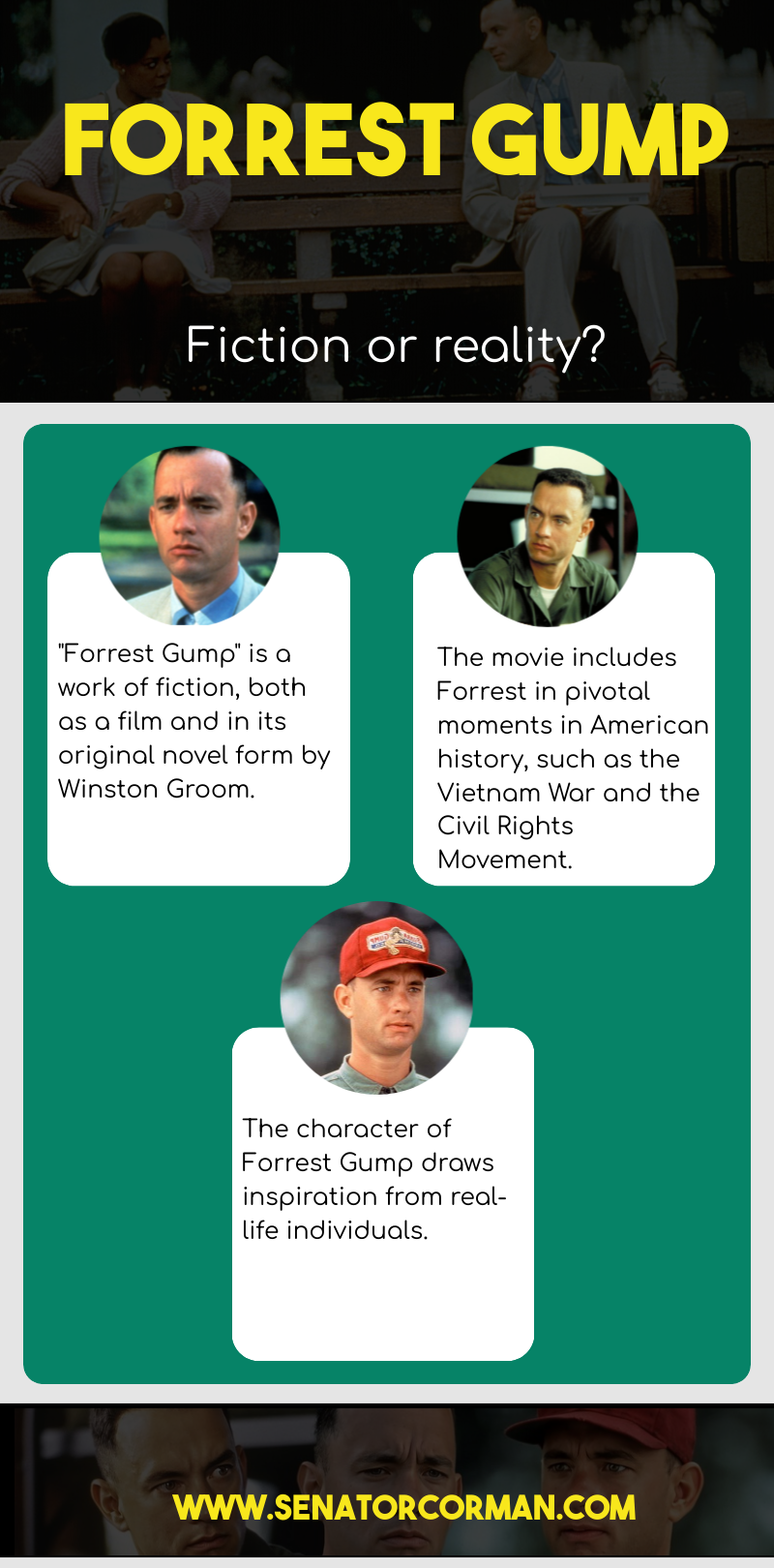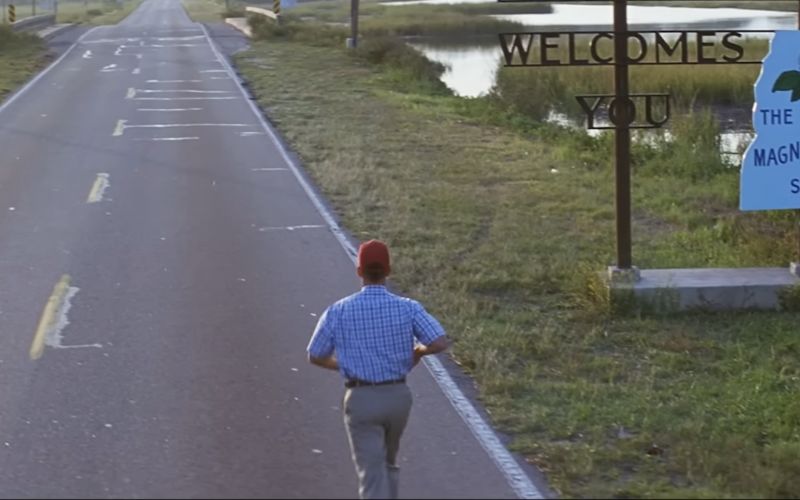“Forrest Gump,” the 1994 film directed by Robert Zemeckis and starring Tom Hanks, is a cinematic gem that has left an indelible mark on the hearts of audiences worldwide. With its unique blend of humor, drama, and historical narrative, it tells the story of a simple man navigating through several decades of American history.
The film’s cultural impact is undeniable, from its quotable lines to its emotional depth, making it a staple of American cinema. One question that frequently arises is whether Forrest Gump’s extraordinary life story is rooted in reality.
Is Forrest Gump based on a true story, or is it purely a work of fiction?

The Fictional Nature of Forrest Gump
Despite the portrayal of historical events and the inclusion of real-life figures, Forrest Gump’s story is fiction. The character of Forrest, his adventures, and the way he impacts significant moments in American history are creations of the imagination.
The film skillfully weaves these fictional elements with real historical events, creating a narrative that feels both authentic and fantastical. Winston Groom’s novel, which serves as the foundation for the film, is a work of fiction, and screenwriter Eric Roth adapted this narrative, adding layers of cinematic flair and emotional depth.
The interactions Forrest has with historical figures like Presidents Kennedy, Johnson, and Nixon, as well as icons like Elvis Presley and John Lennon, are imaginative scenarios that serve to enrich the film’s narrative.
Background of Forrest Gump
Forest Gump is a story about the latter half of the 20th century, seen through the eyes of Forrest, a man with a low IQ but a big heart.
| Attribute | Details |
|---|---|
| Title | Forrest Gump |
| Release Date | July 6, 1994 |
| Director | Robert Zemeckis |
| Screenwriter | Eric Roth |
| Based on | Novel by Winston Groom |
| Main Cast | Tom Hanks (Forrest Gump), Robin Wright (Jenny Curran), Gary Sinise (Lieutenant Dan Taylor), Mykelti Williamson (Bubba Blue) |
| Genre | Drama, Romance |
| Box Office | Over $678.2 million worldwide |
| Awards | Academy Awards for Best Picture, Best Actor (Tom Hanks), Best Director (Robert Zemeckis), among others |
| Budget | $55 million |
| Runtime | 142 minutes |
| Studio(s) | Paramount Pictures |
| Distributor(s) | Paramount Pictures |
Adapted from Winston Groom’s novel, the film diverges in several key aspects from its source material but retains the essence of Forrest’s adventures.
The character of Forrest Gump, portrayed with endearing sincerity by Tom Hanks, unwittingly influences major historical events, from the Vietnam War to the Watergate scandal, making the audience wonder about the line between fiction and reality in his story.
Real-Life Inspirations
While Forrest Gump himself is a product of fiction, the character’s creation was influenced by real-life individuals and stories. Notably, the character shares similarities with Sammy Lee Lewis, a Vietnam War veteran with a story that echoes Forrest’s own.
Winston Groom, the author of the original novel, drew inspiration from his childhood friends, Jimbo Meador and George Radcliff, whose personalities and life experiences are reflected in Forrest’s character. These real-life connections add a layer of depth to Forrest’s character, blending the lines between fiction and reality and highlighting the universal qualities of resilience, kindness, and determination.
Historical Events In the Movie

“Forrest Gump” masterfully integrates its fictional protagonist into the fabric of American history, placing Forrest at the center of key events from the 1950s through the 1980s.
The film’s portrayal of these events, from the desegregation of the University of Alabama to the Vietnam War and the Watergate scandal, showcases a delicate balance between historical accuracy and narrative creativity.
While the film takes liberties with the specifics of these events, it captures the essence of the era and reflects on the impact of history on individual lives. Forrest’s involvement in these events, though fictional, prompts viewers to reflect on the nature of history and the role of individuals within it.
Cultural and Pop Culture Impact

Since its release, “Forrest Gump” has become a piece of cultural iconography. Phrases like “Life is like a box of chocolates” have become part of the American lexicon, and the film’s scenes and characters are deeply ingrained in the collective memory.
Its selection for preservation in the National Film Registry shows its significance in American culture and film history. The film’s ability to resonate with audiences across generations speaks to its universal themes of love, resilience, and the unpredictability of life.
Summary
While Forrest Gump’s adventures are not based on a true story, the film stands as proof of the power of storytelling. It blurs the lines between reality and fiction, crafting a narrative that captures the complexity of the human experience against the backdrop of American history.
The real-life inspirations behind the character of Forrest Gump add a layer of authenticity to his story, making it relatable and compelling. “Forrest Gump” remains a beloved masterpiece, a film that challenges, entertains, and inspires, reminding us of the impact one individual can have on the world around them.












